20th Annual Have a Heart for the Holidays Gift Drive Luncheon
- Details
- Written by: Joanne Wallenstein
- Hits: 786
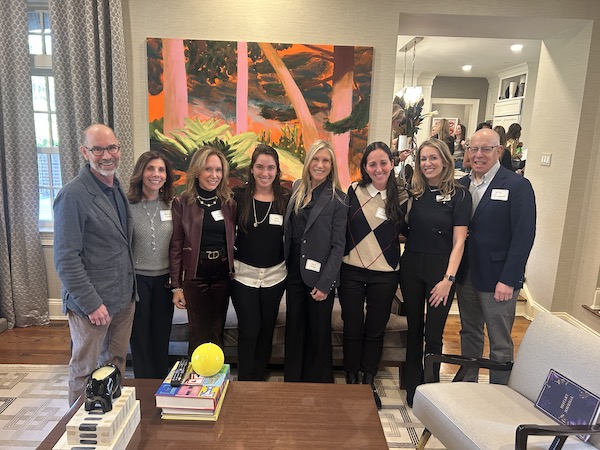 Scarsdale resident and Westchester Jewish Community Services (WJCS) Board member Linda Plattus hosted her 20th annual luncheon, along with WJCS Board Members Sarah Kayle and Nina Ross; NextGen Council Members Yael Friedland and Samantha Stavis; and Host Committee Michelle Dinenberg, Poornima Eber, Allison Friedland, Fara Friedman, Jennifer Galeon, Jessica Levinson, Jessica Eckhaus Modell, and Robin Silk on November 19, 2025.
Scarsdale resident and Westchester Jewish Community Services (WJCS) Board member Linda Plattus hosted her 20th annual luncheon, along with WJCS Board Members Sarah Kayle and Nina Ross; NextGen Council Members Yael Friedland and Samantha Stavis; and Host Committee Michelle Dinenberg, Poornima Eber, Allison Friedland, Fara Friedman, Jennifer Galeon, Jessica Levinson, Jessica Eckhaus Modell, and Robin Silk on November 19, 2025.
Luncheon guest brought toys, games, and gift cards that will be distributed to WJCS clients who live in under-resourced communities. For many of these families in need, these toys will be the only gift they are able to give their children this season. Over 1,000 gifts have been committed to the drive to date.
Guests heard from WJCS Board President William Shirley, Chief Executive Officer Seth Diamond, Assistant Executive Director of Children, Youth, and Families Katrina Schermerhorn, and Director of Family Matters Carolyn Murphy about the breadth and depth of WJCS's programs and services that improve the lives of thousands of Westchester residents each year.
The floral centerpiece was donated by House of Flowers in Mamaroneck, and cookies and cakes were donated by Martine’s Fine Bake Shop in Scarsdale. Donations to the WJCS Have a Heart for the Holidays Gift Drive can be made here.
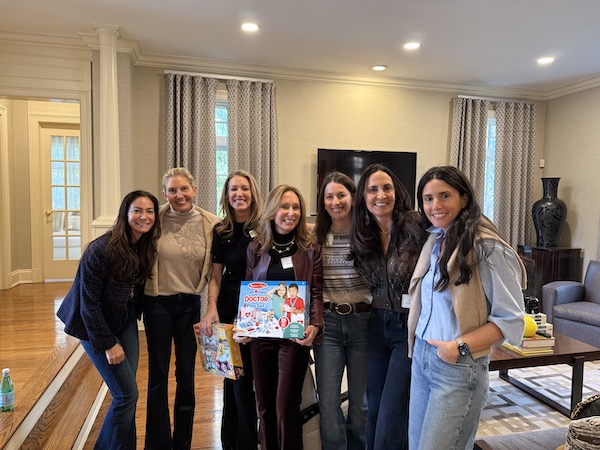
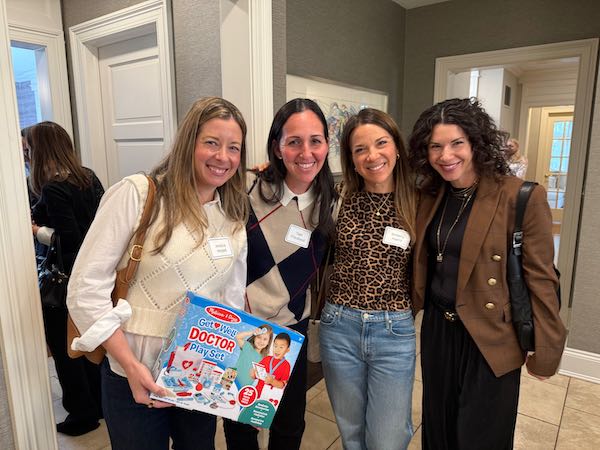
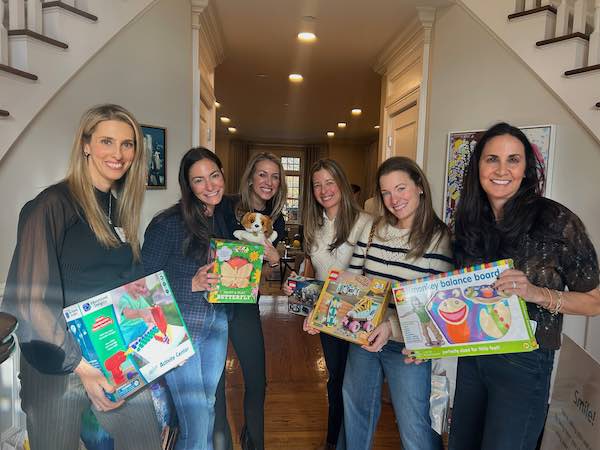
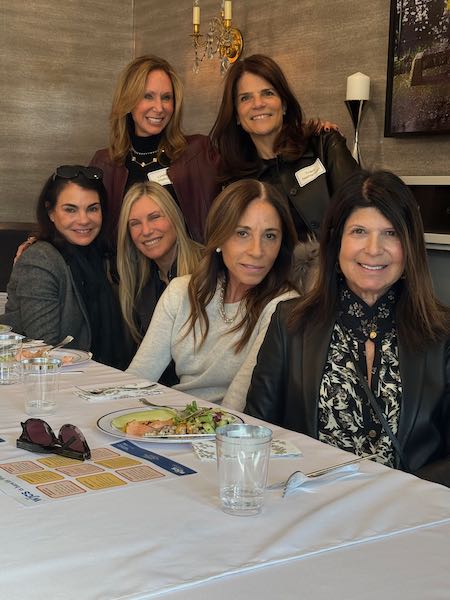
And They're Back! Class of 1970 Celebrates 55th Reunion
- Details
- Written by: Joanne Wallenstein
- Hits: 864
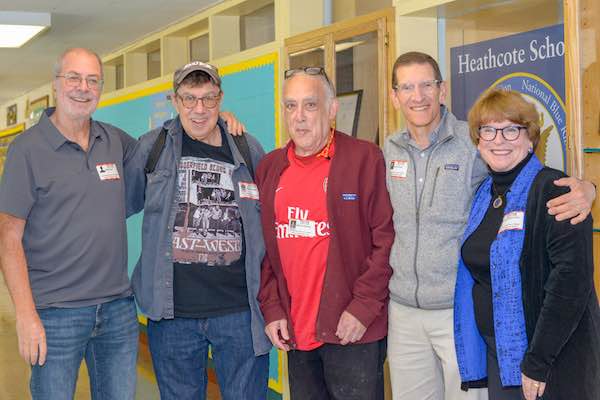 75 classmates and spouses of the Scarsdale High School Class of 1970 enjoyed a celebration of their 55th reunion on October 10 and 11, 2025. Alumni planned a terrific weekend filled with activities at the Edith Macy Center in Briarcliff Manor. First, some visited their elementary schools, then laughed and hugged and enjoyed rekindling old friendships.
75 classmates and spouses of the Scarsdale High School Class of 1970 enjoyed a celebration of their 55th reunion on October 10 and 11, 2025. Alumni planned a terrific weekend filled with activities at the Edith Macy Center in Briarcliff Manor. First, some visited their elementary schools, then laughed and hugged and enjoyed rekindling old friendships.
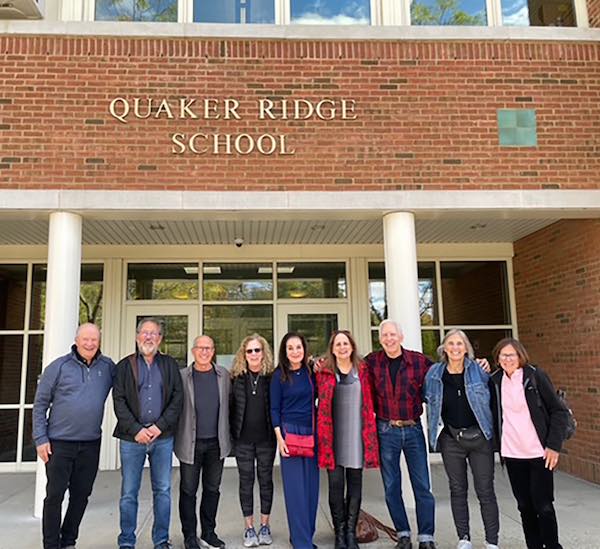
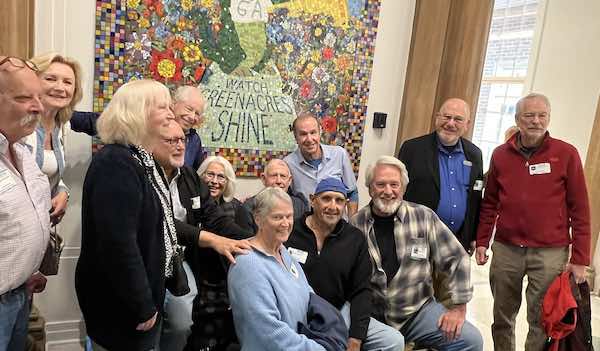
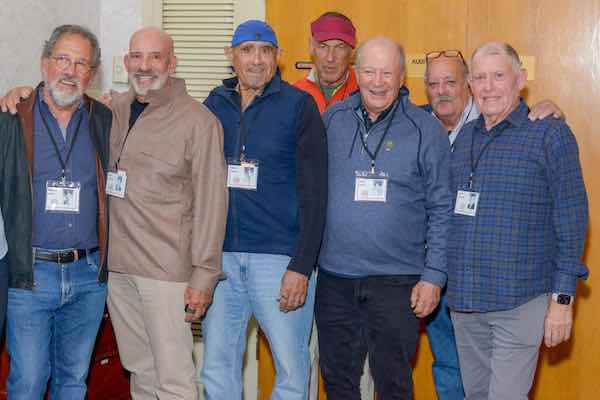
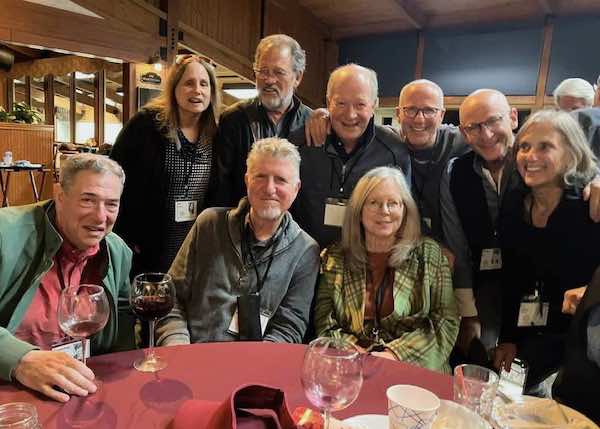
Submitted by Karen Milnes of Ashville, North Carolina.
Community Leaders and Supporters Gather at Hoff-Barthelson to Celebrate Music and Young Talent
- Details
- Written by: Joanne Wallenstein
- Hits: 532
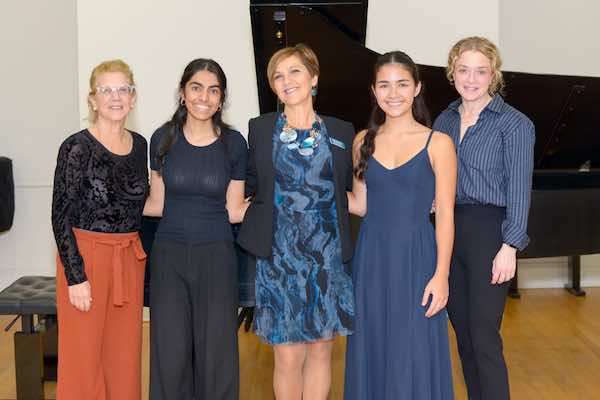 NY State Senator Shelly Mayer, Meera Chari, HBMS Executive Director Gabriella Sanna, Ariana Thomas, and Scarsdale Deputy Mayor Dara Gruenberg. Photo by Steven Schnur.Hoff-Barthelson Music School welcomed New York State Senator Shelly Mayer, Scarsdale Deputy Mayor Dara Gruenberg, and other supporters of the School for a festive afternoon of music, cocktails, and conversation celebrating HBMS students and the vibrant community that sustains them.
NY State Senator Shelly Mayer, Meera Chari, HBMS Executive Director Gabriella Sanna, Ariana Thomas, and Scarsdale Deputy Mayor Dara Gruenberg. Photo by Steven Schnur.Hoff-Barthelson Music School welcomed New York State Senator Shelly Mayer, Scarsdale Deputy Mayor Dara Gruenberg, and other supporters of the School for a festive afternoon of music, cocktails, and conversation celebrating HBMS students and the vibrant community that sustains them.
The event featured outstanding performances by HBMS high school seniors Meera Chari (cello) and Ariana Thomas (piano), whose artistry and dedication embody Hoff-Barthelson’s mission to inspire excellence and foster a lifelong love of music.
“We are deeply grateful for the partnership and support of our community,” said Gabriella Sanna, Executive Director of Hoff-Barthelson Music School. “It is through this shared commitment that our students are able to grow as musicians and as confident, creative individuals. Their success reflects the spirit of collaboration that defines Hoff-Barthelson.”
Dana Matsushita, Chair of the HBMS Board of Trustees, added, “Hoff-Barthelson’s strength lies in the extraordinary network of families, faculty, alumni, and friends who believe in the transformative power of music education. It was wonderful to see so many supporters come together to celebrate our students and reaffirm the School’s vital role in the cultural life of our community.”
Building On a Legacy
- Details
- Written by: Bill Doescher
- Hits: 731
 The New Choral Society kicked off its new season with a performance of Vivaldi Gloria and Handel Coronation Anthems. (Photo credit: Tony Allen Photography)The New Choral Society (NCS) is back in town with all its glory, wonderful precision sounds, and the usual noticeable professionalism at many levels with six new choral singers, two new vocal soloists, and a different concertmaster for its first concert of the 2025-2026 season.
The New Choral Society kicked off its new season with a performance of Vivaldi Gloria and Handel Coronation Anthems. (Photo credit: Tony Allen Photography)The New Choral Society (NCS) is back in town with all its glory, wonderful precision sounds, and the usual noticeable professionalism at many levels with six new choral singers, two new vocal soloists, and a different concertmaster for its first concert of the 2025-2026 season.
The 32nd season began earlier than in past years, on Sunday afternoon, October 26, in the sanctuary of the Hitchcock Presbyterian Church on Greenacres Avenue. The musicians, 48 singers and the 15-member orchestra with Elizabeth Lim-Dutton in the Violin 1 slot, replacing Una Tone who is now the concertmaster of Ragtime on Broadway, included two beautiful musical pieces—Vivaldi’s Gloria and Handel’s Coronation Anthems, all under the continued direction of Dr. John T. King, Artistic Director and Conductor for all those years.
Emma Marhefka, soprano, and Ashly Brown, mezzo soprano, were both excellent in their first performances with NCS. They sang a glorious duet of "Laudamus te." Ms. Marhefka sang a lovely, lilting "Domine Deus" and Ms. Brown sang a fiery "Qui sedes ad dexteram Patris." Ms. Brown also performed "Domine Deus, Agnus Dei" with the chorus.
Dr. Frayda Lindemann, benefactor of the Lindemann Young Artist Development Program of the Metropolitan Opera, was in attendance to support the chorus and young soloists, whom she greeted warmly backstage. Emma Marhefka is in her first year of the Lindemann Program.
“BRAVO,” which means “well done!” and “excellent!” is the only way to describe the first performance of its 32nd season. Without missing a beat, King is continuing to build on a well- deserved and marvelous legacy that he started when he founded NCS in 1994.
Next-up for NCS, and to usher in the holiday season, will be the always-to-look-forward-to annual performances of Handel’s Messiah, Part 1 on Friday, December 5 and Sunday, December 7. Tickets are going fast at www.newchoralsociety.org.
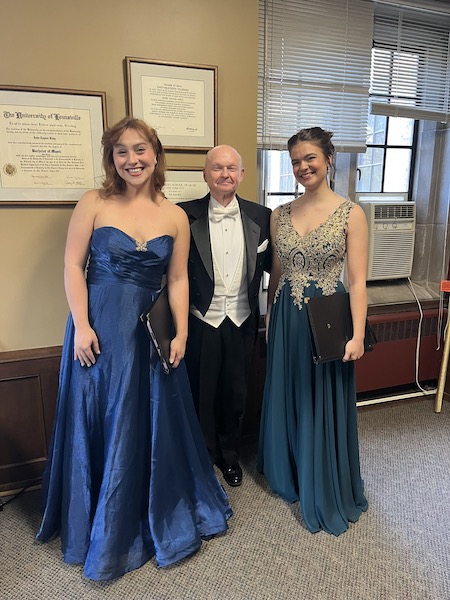
Halloween Street Closures for Trick or Treaters
- Details
- Written by: Joanne Wallenstein
- Hits: 981
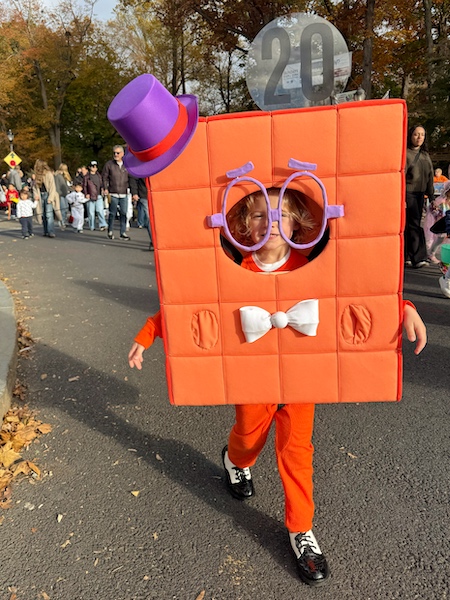 The Village of Scarsdale will experience several temporary neighborhood street closures on Friday, October 31, 2025, to accommodate annual community Halloween events. Residents and motorists are advised to plan ahead and use alternate routes during the affected times.
The Village of Scarsdale will experience several temporary neighborhood street closures on Friday, October 31, 2025, to accommodate annual community Halloween events. Residents and motorists are advised to plan ahead and use alternate routes during the affected times.
Neighborhood associations have coordinated with the Scarsdale Police Department to ensure safety for all participants, particularly trick-or-treaters and pedestrians. Barricades will be placed prior to event start times and removed promptly after each gathering concludes.
The following closures will be in effect: Fox Meadow Neighborhood
• Fox Meadow Halloween Parade Time: 8:30 AM – 10:30 AM
Locations:
o Chesterfield Road between Hampton and Brewster Road
o Brewster Road between Chesterfield and Butler Road
• Evening Halloween Road Closures Time: 5:30 PM – 7:30 PM
Locations:
o Shawnee Road
o Hampton Road between Cohawney and Chesterfield Road
o Chesterfield Road between Brite Avenue & Kensington Road o Cohawney Road between Brite Avenue & Kensington
o Kensington Road between Cohawney and Chestefield
o Brewster Road between Fenimore & Butler Road
Greenacres Neighborhood
• Greenacres Neighborhood Association Street Closures Time: 5:30 PM – 7:30 PM
Locations:
o Corner of Brewster & Fenimore Roads o Brewster & Huntington Avenues
o Oakstwain & Fenimore Roads
o Sage Terrace & Putnam Road
o Sage Terrace & Brite Avenue East Heathcote Neighborhood
• East Heathcote Halloween Road Closure Time: 5:30 PM – 7:30 PM
Locations:
o Carthage Road between Wakefield Road & Lincoln Road o Ardmore Road, Lebanon Road, & Fayette Road
o Crossway between Ardmore & Fayette Road
Other Closures
• Nelson Road between Scarsdale Boulevard and Sprague Road
Time: 4:00 PM – 10:00 PM
Motorists are reminded to drive cautiously in all neighborhoods throughout Halloween evening, as pedestrian activity is expected to be high. Police personnel will monitor closures and assist with traffic control where necessary.
For additional information, please contact the Village Manager’s Office at (914) 722-1110.







